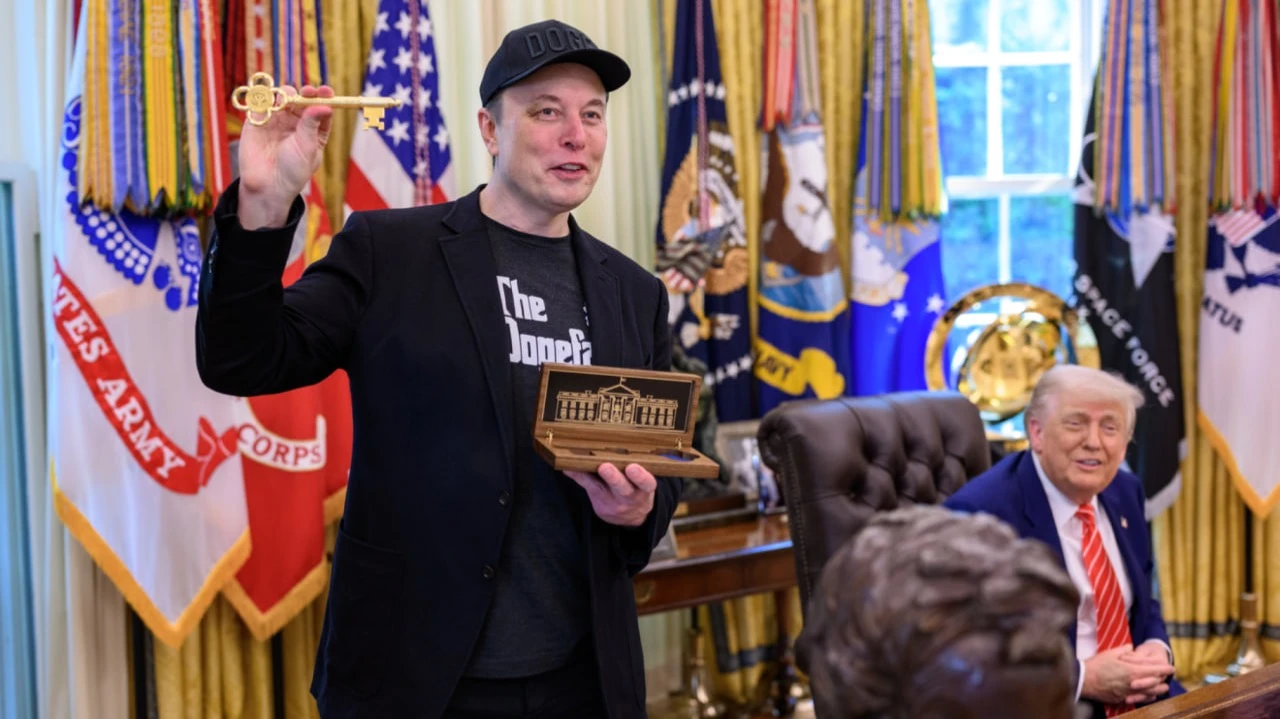"Alien vs. Predator": what economists and political analysts are writing about Trump and Musk's spat

The main internet drama and the most discussed topic on blogs this week is the public spat between billionaire Ilon Musk and US President Donald Trump.
Back in February, Musk wrote in X that he loves Trump "as much as how much one heterosexual man can love another"; in late May, as Musk was finishing up his job at the Department of Government Efficiency (DOGE), the two exchanged handshakes, mutual compliments and promises to "stay in touch."
This week it turned into mutual insults and threats. Ilon Musk sharply criticized the Republican "Big Beautiful" bill, which proposes, on the one hand, tax cuts, on the other - cuts in benefits for "green projects" (which concerns Musk's business) and social spending. The billionaire called the document "disgusting." "Shame on those who voted for it: you know what you did was wrong. You know it," he wrote in X.
What followed was an escalation: Musk supported the idea of impeaching Trump and declared that the American president was in the "Epstein files," referring to a case against financier Jeffrey Epstein about prostitution and human trafficking, including of minors (he later deleted the reports). Trump called a former associate insane and suggested withdrawing government contracts and subsidies from Musk's companies.
The conflict instantly spawned a wave of memes on blogs, with commenters comparing it to "An alien vs. Predator" and to the behavior of divorcing parents.
What's in store for Elon Musk
Brad DeLong, a professor of economics at the University of California, Berkeley, in his blog expresses concern over the financial situation of Ilon Musk. He writes, "What are the chances of personal bankruptcy for Elon Musk over the next decade? In my opinion, they have increased significantly."
DeLong argues that Musk, believing that Donald Trump's support would provide his companies - Tesla and SpaceX - with government subsidies, tax breaks and control over NASA's budget, was mistaken. As a result, he was left in a vulnerable position: without government support, his companies could face financial difficulties, jeopardizing his personal wealth. Tesla shares collapsed more than 14.26% on Thursday, rising only 3.67% on Friday. For the week, their price has fallen 14.8%.
DeLong emphasizes that Musk is trying to use his influence and ideology to put pressure on Trump to maintain the funding necessary for his companies to survive.
Elon Musk: the tragedy of the techno-mogul in politics
Political scientist and philosopher Francis Fukuyama in his article "The Tragedy of Elon Musk" calls him a remarkable engineer and entrepreneur whose penchant for political ventures has had devastating consequences - both for American governance and Musk himself. Tesla changed the auto industry, SpaceX became a pillar of the U.S. space program, and Starlink proved indispensable on the battlefield in Ukraine. But these achievements only emphasize the scale of the disaster he has created for himself by meddling in politics.
Musk, according to Fukuyama, is a classic example of a techno-mogul who decided that success in one field automatically makes him a visionary in others. In politics, however, Musk turned out to be a destructive dilettante with astonishingly poor judgment. This, for example, has affected Tesla. The loyal customer base, primarily the liberal middle class, has begun to turn away from the brand, while Trump's supporters - his new allies - are unlikely to buy en masse the expensive electric cars that Trump himself regularly sneers at.
Against the backdrop of political self-promotion, Musk began to pay less attention to business. As a result, according to Fukuyama, he struck a double blow: DOGE undermined the efficiency of the state apparatus, and his political ambitions undermined the position of the company he had spent 20 years building. If Tesla collapses, not only shareholders will suffer, but the entire U.S. economy, he writes;
Did Musk really help Trump win the election?
As recently as late last year, American statistician Nate Silver wrote that there was a 70 percent chance Musk would start criticizing Trump before the 2028 election, and a 90 percent chance that DOGE, which Musk led, would fail to cut at least $500 billion in budget funds. DOGE's website indicates that the department has cut $180 billion in spending, but its reports have regularly found errors. According to an estimate by The Atlantic as of early May, DOGE cut spending by a maximum of $15 billion, about 0.2% of U.S. federal spending.
Musk said during the altercation that without his support, Trump would have lost the election and "Democrats would control the House of Representatives."
Musk did indeed donate more than $250 million to Trump's campaign. But as Silver notes, Trump's victory in swing states was, while not overwhelming, not so fragile as to depend on a single donor.
Musk's influence can manifest itself in more than just donations, however.
Since buying Twitter, Musk has transformed the platform from a moderately center-left to an outright right-wing media mouthpiece. According to Silver, X (as Twitter is now called) still significantly outperforms competitors, like Bluesky, in reach and influence, with interest in the latter dropping after Trump's election victory. This makes Musk's platform a potential electoral influencer. In fact, X could become not only a tool for political mobilization, but also a weapon in personal conflicts - which is what everyone has seen now.
Musk, in Silver's view, fostered a new political "waiba" that secured Trump's support from a young male audience. But this cultural paradigm of the "techno-right" (built on a mix of anti-system sentiment, techno-optimism, and an aggressive communication style), is now crumbling. And in this sense, Musk has more to lose than Trump: he has higher anti-rating (the difference between those who approve of his actions and those who oppose is minus 13.9 percent versus minus 3.7 percent for Trump), fewer political allies, and almost no institutional support, Silver summarizes.
